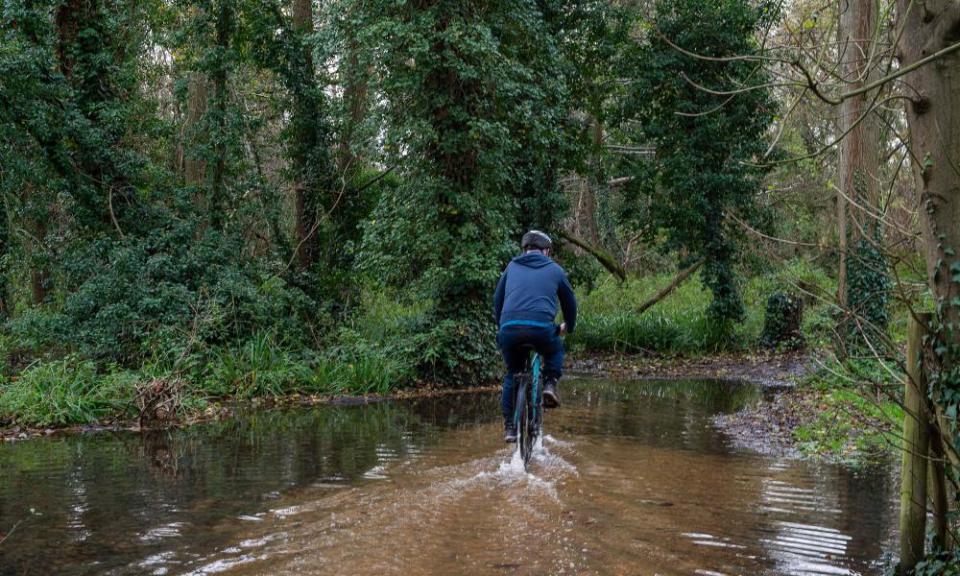Heavy rain helps England's chalk streams flow again

Groundwater levels are currently classed as high or exceptionally high by the Environment Agency in parts of England where chalk streams and other water bodies have for decades been badly depleted by over-abstraction. High rainfall in the south and east of England has topped up chalk aquifers to sometimes record levels.
Grassy hollows in fields have become streams again as old springs gush with clear water. In some cases this has caused hazards and flooding where the unwary have blocked long dry watercourses.
In parts of the country, particularly Dorset and Wiltshire, this rebirth of streams at this time of year in areas of chalk aquifers has always been a feature of local life, hence a dozen places with Winterbourne as part of their name. It is also true of many other rivers including the Thames, which get a little longer in the winter when the upper reaches flow again after heavy rains and springs are reactivated.
But it is also a reminder of the loss of so many of our beautiful chalk streams once populated by may flies, trout and water voles that have disappeared because of over-abstraction by water companies and farmers. It is another example of the long-running struggle between human priorities and the needs of the natural world.

 Yahoo Finance
Yahoo Finance 